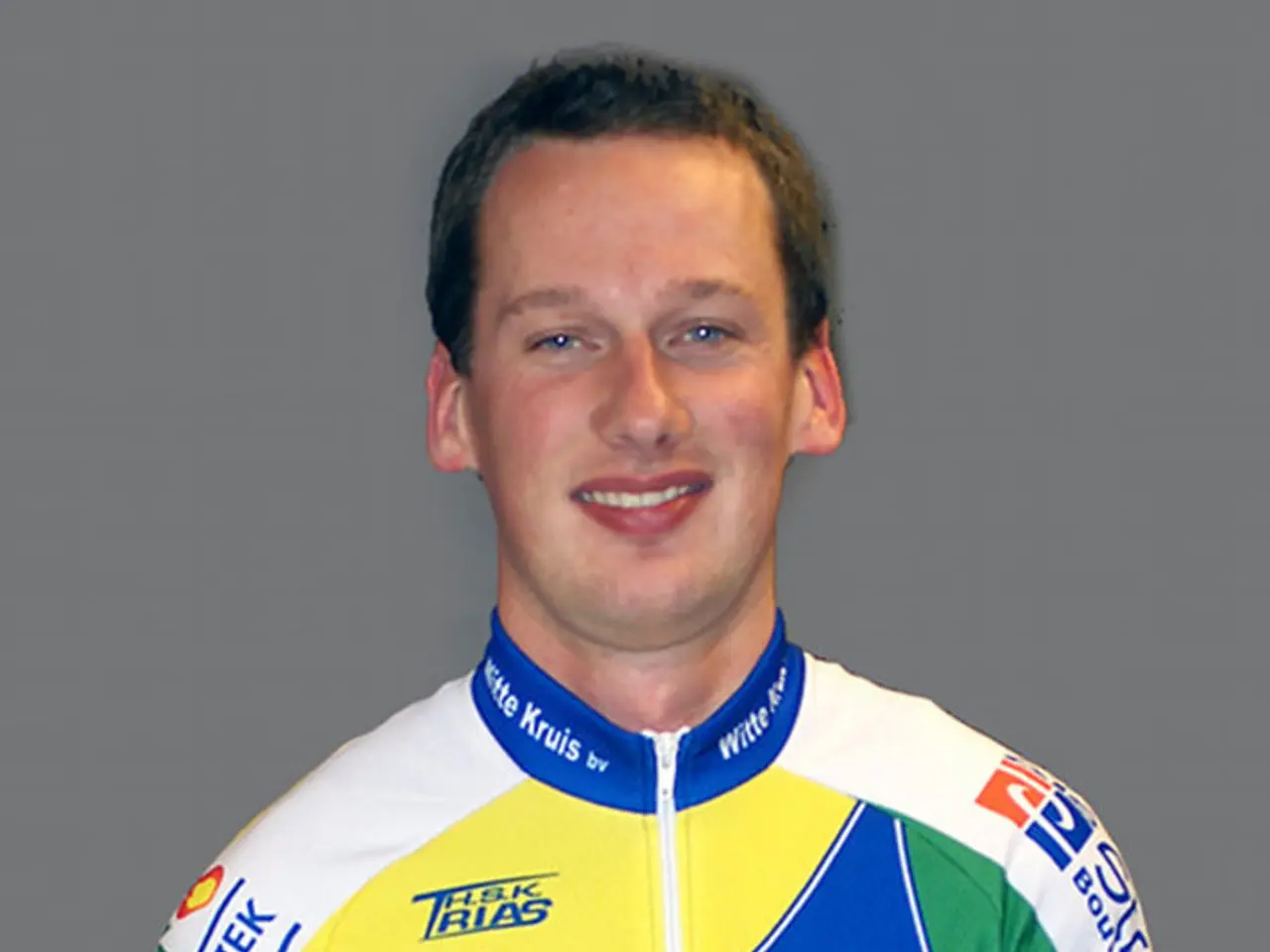Male cyclists acknowledged for appearing as genuine athletes, but struggling with self-starvation due to eating disorders: The importance of male athletes openly discussing eating disorders
In the world of competitive cycling, a significant issue has come to light: the rising prevalence of eating disorders among male cyclists.
According to recent reports, there was a fivefold increase in the number of male cyclists referred for eating disorders over a single year in 2019. However, the exact number of men in the UK suffering from these conditions remains unknown.
The pressure to maintain a lean physique for optimal performance has been identified as a contributing factor. Society's praise for the cyclist's 'discipline' and shrinking frame may, in some cases, be a catalyst for disordered eating. Early signs of such behaviour include withdrawing from meals, eating alone, or gradually restricting food intake.
A study from 2007 found that 19.7% of competitive male cyclists were at risk of disordered eating behaviours. More recent estimates suggest that men may account for up to 40% of eating disorder cases. This is a concerning trend, as eating disorders have the highest mortality rate of any mental illness, with an estimated 5-10% of people with anorexia eventually losing their lives to the condition.
The case of a cyclist diagnosed with anorexia in 2020 underscores the gravity of the situation. The cyclist, who rode on little to no food to fuel their body, had been controlling their food intake as a means of coping with adult life. Their first signs of an eating disorder were noticed in 2018.
The cyclist is not alone. 79% of male cyclists have admitted to deliberately trying to manipulate their body weight in the last 12 months, with 95% of these doing so with the aim to lower their weight. Furthermore, 6% of competitive male cyclists have fallen prey to disordered eating, while 17% are at significant risk.
The pressure to lose weight comes not only from within the sport. 46% of male cyclists reported feeling pressure from coaches or teammates to shed pounds.
To combat this issue, professional cycling teams and sports medicine organisations are implementing strategies such as increased education on nutrition and healthy eating behaviours, monitoring athletes' physical and psychological health, and fostering open dialogue about eating disorders. The American College of Sports Medicine (ACSM) emphasises the importance of awareness campaigns and multidisciplinary approaches involving dietitians, psychologists, and medical staff to identify and support athletes at risk.
However, structured team-based programs specific to male cyclists remain less well-documented in the literature. More research and targeted interventions for this group are needed to ensure the health and well-being of male cyclists and address the growing concern of eating disorders in the sport.
- The concern over eating disorders isn't limited to the world of competitive cycling, as it's alarmingly prevalent in health-and-wellness sectors, including mental health, with recent estimates suggesting that men may account for up to 40% of eating disorder cases.
- Given the high mortality rate of eating disorders, being the highest among mental illnesses (with an estimated 5-10% of people with anorexia eventually losing their lives to the condition), it's crucial that sports like cycling prioritize science and evidence-based measures to promote mental health and wellness, such as increased education on nutrition, monitoring athlete health, and fostering open dialogue on eating disorders, as advocated by organizations like the American College of Sports Medicine (ACSM).




